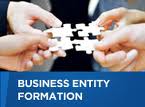When a business is required to deduct and withhold taxes and remit them to the Franchise Tax Board (FTB), a successor to the business can be responsible for paying the amount owing to the FTB if the business does not pay them.
Who is a successor? A “successor” is anyone who acquires a substantial portion of the assets or the business. It doesn’t matter how the assets were acquired. They can be purchased, transferred, distributed to shareholders or other owners in liquidation, or inherited.
By virtue of Revenue & Taxation Code section 18669, the obligation to pay required withholding tax (and interest and penalties, if applicable) is transferred with the assets. The successor’s liability is limited to the fair market value of the assets acquired. Thus, if a seller’s liability to the FTB is $100,000 and the business is sold in an arm’s-length transaction for $60,000, the buyer is only liable for $60,000. But that’s $60,000 more than the buyer was expecting!
How to avoid this pitfall? A purchaser (or other potential) successor can submit a written request to the FTB for the amount of withholding taxes, interest, or penalties due. This is customarily referred to as a “tax clearance certificate.” The FTB has 60 days to issue a tax clearance certificate or a statement showing the amount due. Sixty days, however, can be a long time to wait for the buyer and seller of a business. One way to deal with that delay is to get the ball rolling right away and submit the request for the tax clearance certificate as soon as possible.
If a written request for a tax clearance certificate is not made, the unpaid amount of withholding taxes (and interest and penalties, if applicable) is due the day the business or assets are acquired. If payment is not made then, a 10% penalty, based on the amount payable, can be assessed.
If the FTB does not issue a tax clearance certificate (or statement of amount due) 60 days after request is made, the FTB is deemed to have issued a certificate stating no withholding taxes, interest, or penalties are due. Thus a purchaser would have no liability for the seller’s withholding taxes, interest, or penalties. Although the buyer may be off the hook, the seller is not.
Whether or not the FTB issues a tax clearance certificate (or statement showing the amount due) within the 60-day period, the original business owner (or entity) remains liable for the amount due.
For information about Board of Equalization tax clearance certificates (for sales tax liability), see https://richardburtlaw.com/boe-tax-clearances/
For information about Employment Development Department tax clearance certificates, see https://richardburtlaw.com/blog/edd-tax-clearances/




